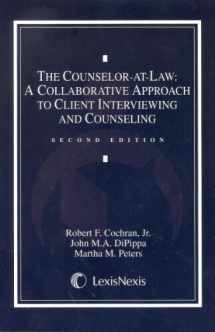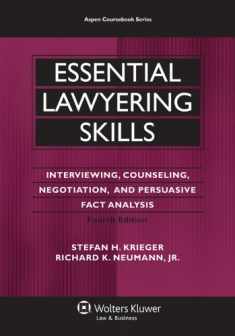
The Counselor-at-Law: A Collaborative Approach to Client Interviewing and Counseling
Book details
Summary
Description
This book takes a collaborative approach to legal interviewing and counseling. It suggests that clients will be best served when lawyers and clients work together to resolve problems. Under a collaborative decision-making model, the client controls most decisions, but the lawyer structures the process and provides advice in a manner that is likely to yield wise decisions.
The Counselor-at-Law explores the major approaches to legal interviewing and counseling and outlines the available research on the psychology and the sociology of clients and lawyers. This book explores communication and decision-making theory, memory and recall, power and submission, personality types, and ethics. From this base, the authors construct a model of interviewing and counseling based on the techniques that are effective in real-life encounters. They also include psychological type theory and explain how it can be used to improve a lawyer's communication, interviewing, and counseling skills.
This innovative casebook provides students with a template for effective legal interviewing and counseling. The most effective legal counselors are the ones instilled with respect for the client, cognizant of building rapport, aware of the psychological dynamics of the lawyer-client relationship, and equipped with technical communication skills to gather information without sacrificing rapport.


We would LOVE it if you could help us and other readers by reviewing the book
Book review




